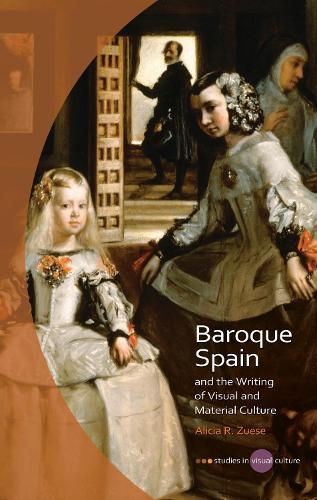Overview
Visual language plays a key role in baroque Spanish literature. By examining the pictorial episodes in Spanish baroque novellas, Alicia R. Zuese elucidates how writers create pictorial texts and how audiences visualize their words. The writers examined include prominent representatives of Spanish prose—Cervantes, Lope de Vega, María de Zayas, and Luis Vélez de Guevara—as well as lesser-known authors including Alonso de Castillo Solórzano, Gonzalo de Céspedes y Meneses, and an anonymous group in Córdoba. Applying methods from cognitive cultural studies, classical memory treatises, and techniques of spiritual visualization, Zuese breaks new ground by investigating how artistic genres and material culture help us grasp an audience’s aural, material, visual, and textual literacies.
Full Product Details
Author: Alicia R. Zuese
Publisher: University of Wales Press
Imprint: University of Wales Press
Dimensions:
Width: 13.80cm
, Height: 3.00cm
, Length: 21.60cm
Weight: 0.499kg
ISBN: 9781783167838
ISBN 10: 1783167831
Pages: 304
Publication Date: 20 November 2015
Audience:
General/trade
,
College/higher education
,
Professional and scholarly
,
General
,
Tertiary & Higher Education
Format: Hardback
Publisher's Status: Active
Availability: In Print

This item will be ordered in for you from one of our suppliers. Upon receipt, we will promptly dispatch it out to you. For in store availability, please contact us.
Reviews
Alicia R. Zuese s wide-ranging study elegantly argues that seventeenth-century Spanish works of fiction, and in particular novella collections, were profoundly impacted by visual media. <i>Baroque Spain </i>explores the nexus of literary analysis, cognitive studies, and visual and material culture, and will be of great interest to readers outside of Hispanic Studies. --Patricia W. Manning, University of Kansas
Alicia R. Zuese's wide-ranging study elegantly argues that seventeenth-century Spanish works of fiction, and in particular novella collections, were profoundly impacted by visual media. Baroque Spain explores the nexus of literary analysis, cognitive studies, and visual and material culture, and will be of great interest to readers outside of Hispanic Studies. --Patricia W. Manning, University of Kansas
Alicia R. Zuese s wide-ranging study elegantly argues that seventeenth-century Spanish works of fiction, and in particular novella collections, were profoundly impacted by visual media. Baroque Spain explores the nexus of literary analysis, cognitive studies, and visual and material culture, and will be of great interest to readers outside of Hispanic Studies. --Patricia W. Manning, University of Kansas
Alicia R. Zuese s wide-ranging study elegantly argues that seventeenth-century Spanish works of fiction, and in particular novella collections, were profoundly impacted by visual media. Baroque Spain explores the nexus of literary analysis, cognitive studies, and visual and material culture, and will be of great interest to readers outside of Hispanic Studies. --Patricia W. Manning, University of Kansas
Alicia R. Zuese's wide-ranging study elegantly argues that seventeenth-century Spanish works of fiction, and in particular novella collections, were profoundly impacted by visual media. Baroque Spain explores the nexus of literary analysis, cognitive studies, and visual and material culture, and will be of great interest to readers outside of Hispanic Studies. --Patricia W. Manning, University of Kansas
Author Information
This book is aimed at an audience of undergraduate and postgraduate students, and professors and researchers interested in medieval through baroque Spanish literature, art, book history and visual and material culture.




